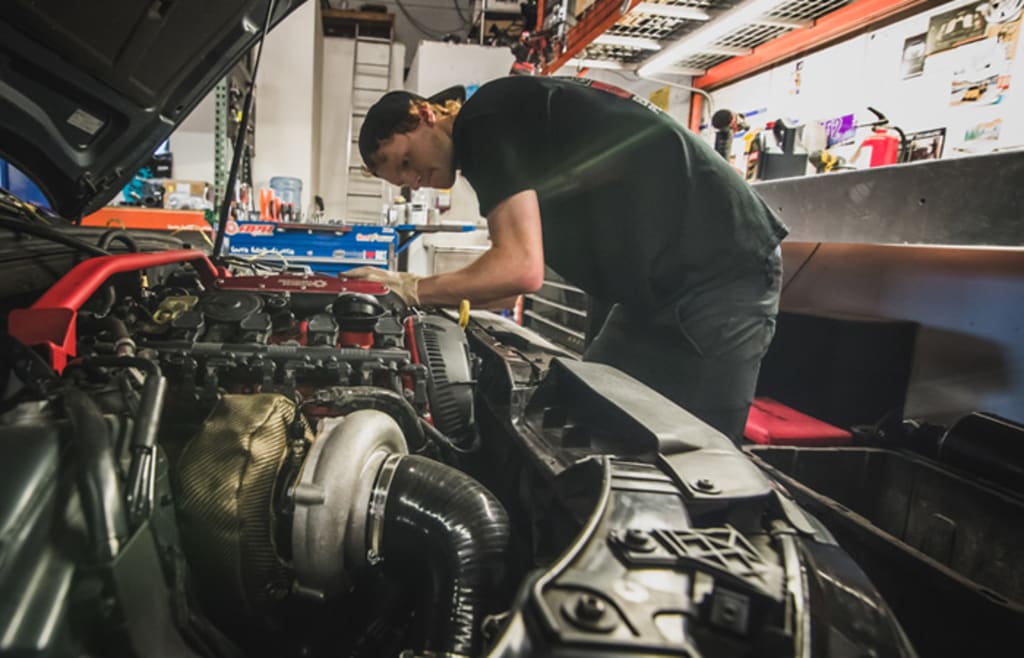The Art of Car Tuning: How to Transform Your Ride into a High-Performance Machine
Unlocking Your Car's Potential: A Guide to Mastering the Art of Car Tuning

Car tuning is modifying a vehicle to improve its performance, appearance, and overall functionality. Whether you want to upgrade your engine, suspension, exhaust system, or any other aspect of your vehicle, car tuning can be a rewarding way to personalize and improve your ride.
The art of car tuning has evolved significantly over the years, from the days of carbureted engines and basic suspension upgrades to the advanced computer-controlled systems and high-tech materials used in modern vehicles. Today, car tuning has become a popular hobby for car enthusiasts worldwide, with many individuals and companies offering a wide range of tuning products and services.
While car tuning can be a fun and exciting way to improve your vehicle, it is important to approach it cautiously and follow best practices to ensure safety and optimal performance. In this article, we will explore the basics of car tuning, including planning your project, following safety guidelines, and utilizing top car tuning techniques to transform your ride into a high-performance machine.
Understanding the Basics of Car Tuning
The first step in car tuning is to understand the different modifications that can be made to your vehicle. The most common modifications include engine, suspension, exhaust, and brake system modifications.
Engine modifications include a simple air intake to a complete engine swap. Upgrading your engine can improve horsepower, torque, acceleration, and fuel economy.
Suspension modifications can improve the handling and stability of your vehicle. This can include shocks, struts, springs, and sway bar upgrades.
Exhaust system modifications can improve the sound of your vehicle and increase horsepower. This can include upgrades to the muffler, headers, and catalytic converter.
Brake system modifications can improve the stopping power of your vehicle. This can include upgrades to the brake pads, rotors, and calipers.
When making modifications to your vehicle, it is important to understand the effects of these modifications. Adding more horsepower can lead to more strain on your engine, leading to increased wear and tear. Suspension modifications can improve handling but can also make your ride more uncomfortable. Exhaust system modifications can improve performance but can also make your vehicle louder.
Planning Your Car Tuning Project

Before starting your car tuning project, setting goals and assessing your budget is important. Setting goals can help you determine which modifications to make and which to avoid. Assessing your budget can help you determine whether or not modifications are feasible.
Choosing the right parts and tools is also important when planning your car tuning project. You want to make sure that the parts you choose are compatible with your vehicle and that they will improve performance. Finding a reputable tuner can also help ensure your modifications are done correctly and safely.
DIY Car Tuning vs. Professional Car Tuning
Deciding whether to do your car tuning project or hire a professional tuner is a personal decision. DIY car tuning can be a fun and rewarding experience but requires knowledge, skill, and tools. Professional car tuning can be more expensive, but it also ensures that your modifications that are done correctly and safely.
Choosing the right approach for your project will depend on your goals, budget, and level of expertise. If you are new to car tuning or do not have the necessary tools or expertise, it may be best to hire a professional tuner. If you have experience with car tuning and are comfortable working on your vehicle, DIY car tuning may be a good option.
Best Practices for Car Tuning
Maintaining your vehicle is one of the most important aspects of car tuning. Regular maintenance can prevent costly repairs and keep your vehicle running smoothly. This includes changing the oil, replacing the air filter, and checking the tire pressure.
When tuning your vehicle, it is important to distinguish between tuning for performance and tuning for aesthetics. While both are important, tuning for performance should always take priority. Performance tuning can improve the safety and reliability of your vehicle, while aesthetic tuning is more about personal preference.
Avoiding common mistakes is also important when tuning your vehicle. This includes over-tuning, which can lead to decreased reliability, and under-tuning, which can lead to decreased performance. Following safety guidelines, such as wearing protective gear and using proper tools and equipment, is also important to avoid accidents or injury.
Top Car Tuning Techniques for High-Performance Machines
Several car tuning techniques can take your ride to the next level. These include:
- Engine Tuning: Upgrading your engine can improve performance and fuel efficiency. This can include air intake, exhaust system, and engine management system upgrades.
- Suspension Tuning: Improving your suspension can improve handling and stability. This can include shocks, struts, springs, and sway bar upgrades.
- Exhaust Tuning: Upgrading your exhaust system can improve your vehicle's sound and increase horsepower. This can include upgrades to the muffler, headers, and catalytic converter.
- Brake Tuning: Upgrading your brake system can improve your vehicle's stopping power. This can include upgrades to the brake pads, rotors, and calipers.
- Aerodynamic Modifications: Improving the aerodynamics of your vehicle can improve performance and fuel efficiency. This can include upgrades to the front and rear bumpers, side skirts, and spoilers.
Conclusion
In conclusion, car tuning is a popular and rewarding way to improve the performance and aesthetics of your vehicle. It is an art that requires planning, research, and careful execution. With the right tools, techniques, and expertise, car tuning can transform your ride into a high-performance machine that stands out.
However, it is important to remember that car tuning also comes with risks. Modifying your vehicle can damage your engine, void your warranty, or even result in legal trouble if not done correctly or within the limits of the law. Therefore, it is crucial to prioritize safety and ensure that your modifications comply with local regulations.
If you are new to car tuning or unsure about any aspect of the process, seek the advice of a professional mechanic or tuner. They can help guide you through the process and ensure your modifications are safe, legal, and effective.
Ultimately, car tuning is a personal choice and can be a fun and rewarding hobby for those who enjoy working on their vehicles. The right approach can take your ride to the next level and give you a sense of pride and satisfaction in your customized machine.
FAQs
Q: Is car tuning legal?
A: Car tuning is legal as long as the modifications to your vehicle comply with local laws and regulations. Some modifications may require specific permits or certifications, so it is important to research and understand the laws in your area before making any modifications to your vehicle.
Q: How much does car tuning cost?
A: The cost of car tuning can vary depending on the modifications you make, the parts you choose, and whether you choose to do the tuning yourself or hire a professional. Basic modifications, such as an air intake or exhaust upgrade, can cost a few hundred dollars. In contrast, more extensive modifications, such as a complete engine swap, can cost several thousand dollars.
Q: Can car tuning damage your engine?
A: Car tuning can damage your engine if it is not done correctly or if the modifications are too extreme. It is important to follow best practices, maintain your vehicle, and seek professional advice if you need clarification on any aspect of the tuning process.
About the Creator
Jen Hensey
Call me Jen, a writer and blogger of LifeStyleConvo & UrbanHouses, who worked as a full-time content creator. A writer by day and reader by night.






Comments
There are no comments for this story
Be the first to respond and start the conversation.